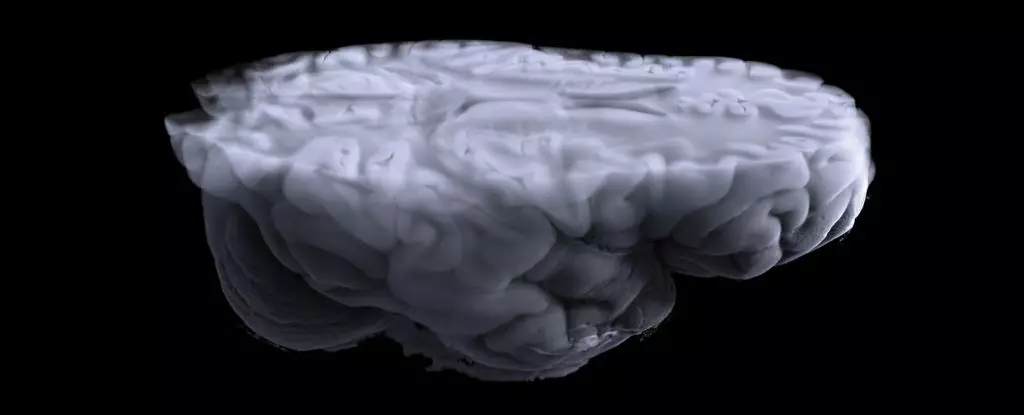The ovaries play a crucial role in the overall health of individuals beyond just reproduction. They are responsible for producing hormones that affect various aspects of health, including heart health, bone density, brain function, and the immune system. Recently, a brain imaging study has raised concerns about the potential long-term consequences of surgical removal of both ovaries. The study examined data from over 1,000 females over the age of 50 in the US and found that those who had both ovaries removed at a young age showed reduced white matter in their brains.
The study found that participants who underwent ovary removal before the age of 40 showed significant reductions in white matter integrity compared to those who did not undergo the surgery. Even those who had their ovaries removed after the age of 40 exhibited reduced white matter, albeit to a lesser extent. These changes in white matter resembled vascular brain disease rather than Alzheimer’s disease, but they are considered as early signs of Alzheimer’s pathology.
The study also highlighted the role of hormones, particularly testosterone and estrogen, in brain health. Testosterone, often associated with male hormones, is also produced by the ovaries and plays a critical role in brain development and white matter integrity. The sudden loss of testosterone due to ovary removal before menopause could have negative effects on brain health. While some participants in the study received estrogen replacement therapy after ovary removal, it did not have a significant impact on white matter integrity, suggesting that the loss of testosterone may be a contributing factor.
Despite the findings of this study, many questions remain unanswered about the role of ovaries in lifelong female health and the implications of their removal. While ovary removal is necessary in cases of cancer, its use for benign conditions such as endometriosis, ovarian cysts, and fibroids is still debated. In the US, a significant number of individuals undergo bilateral oophorectomies, where both ovaries are removed, often at a young age. However, experts argue that the risks and benefits of this procedure are not always carefully considered, especially in younger patients.
Removing both ovaries at a young age can lead to early menopause, which in turn increases the risk of severe chronic health conditions. These conditions include bone density loss, impaired sexual health, cardiovascular disease, cognitive impairment, sleep apnea, and arthritis. It is essential to weigh the risks of ovary removal for benign conditions against the potential long-term consequences on overall health, including brain health.
The ovaries play a crucial role in maintaining overall health, including brain health. The removal of both ovaries, especially at a young age, can have significant implications for cognitive function and brain integrity. It is important for healthcare professionals and patients to carefully consider the risks and benefits of ovary removal, particularly for benign conditions, and to explore alternative treatment options that preserve the ovaries whenever possible. Protecting the brain from harm is just one of the many reasons to spare the ovaries when feasible.


Leave a Reply